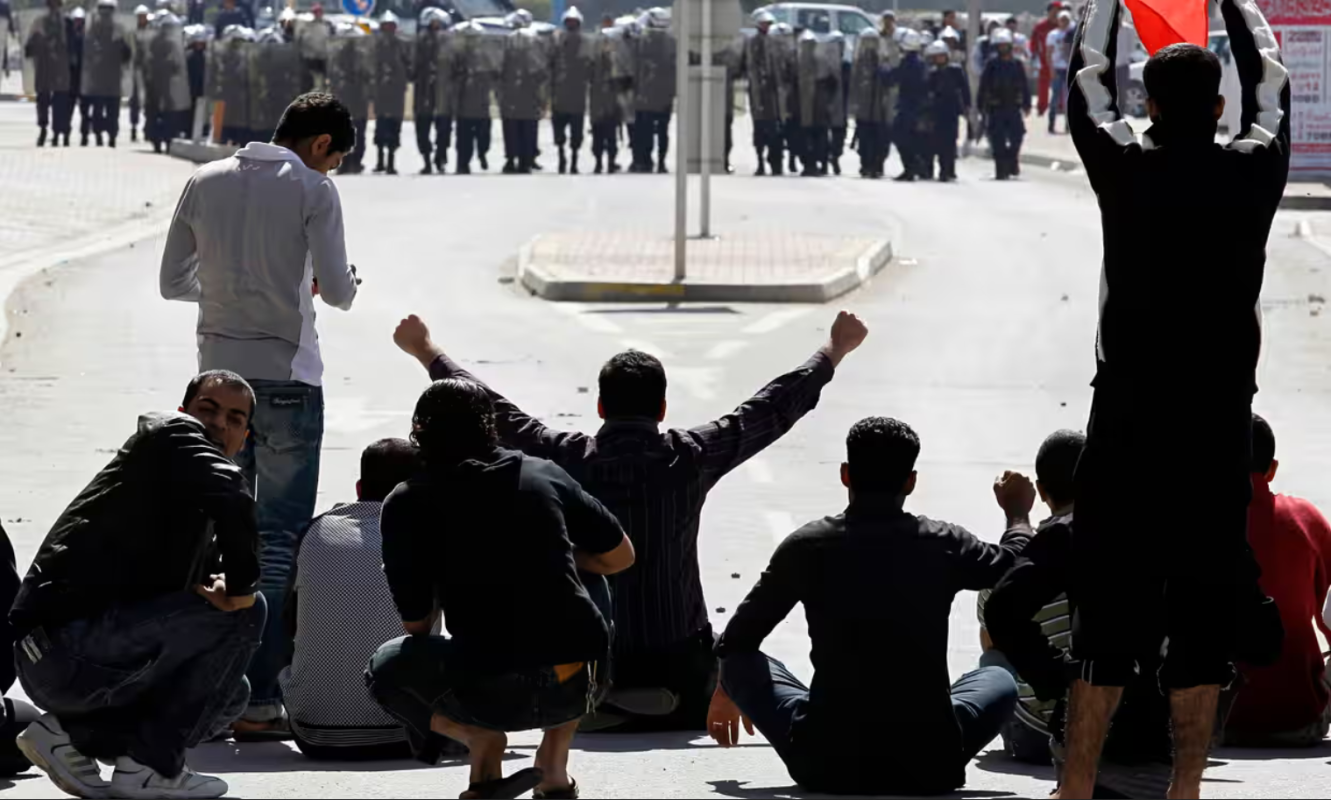Twelve years ago, Bahrainis definitively rewrote their story, challenging the centuries-old autocratic rule imposed by the Al Khalifa monarchy—a ruling family that tightly controlled the state, monopolizing power and wealth. The pro-democracy movement that erupted on Feb. 14, 2011, with over 150,000 protesters, thrust Bahrain into a fervent call for democratic change, challenging centuries of autocratic rule imposed by the Al Khalifa monarchy.
Despite promises of democratic reforms following the 2001 referendum, the government’s reply was to grip power, discriminate against its population, and ruthlessly arrest its political activists. The demand for political, social, and economic reforms echoed, highlighting persistent human rights violations, particularly in freedom of expression.
The government’s response to the peaceful revolution was a brutal crackdown, leading to the imprisonment of human rights defenders and the stifling of dissent. The security forces’ use of rubber bullets, tear gas, and even live ammunition against peaceful protesters highlighted the extent of the repression. Tragically, lives were lost, and death penalty sentences in Bahrain dramatically escalated, all to suppress the dissent.
Since the 2011 uprising, the Bahraini government has persisted in its use of force, resulting in the deaths of protesters and human rights defenders. Reports of torture, ill-treatment, extrajudicial executions, and death sentences persist, all under the shield of impunity, disregarding international pressure. Despite being a State Party to the UN Convention against Torture, Bahrain’s authorities have shamelessly failed to fulfill their duty to investigate and hold perpetrators accountable.
As of November 2023, 27 individuals are at risk of execution, casting serious doubt on the government’s commitment to human rights. The suffocation of dissent and the imposition of harsh sentences create fear, forcing citizens into self-censorship to avoid retribution.
Authorities continue to imprison individuals for exercising their rights to freedom of expression and assembly. In February 2023, the confirmed use of Pegasus spyware against three Bahraini citizens who criticized the government underscores the extent of surveillance and repression. Detentions and summons of citizens for speech-related offenses persist, creating a climate of fear and self-censorship.
Nevertheless, the pro-democracy movement endures, with human rights activists defiantly advocating for the rights of all citizens. Figures like Abdulhadi Al-Khawaja, arrested during the 2011 uprising, face allegations of torture, underscoring the government’s assault on fundamental rights. The government’s use of spyware against critics and ongoing detentions for speech-related offenses expose the relentless assault on freedom of expression.
The Bahraini government must be held accountable, with demands for the restoration of full legal, political, and civil rights to all citizens. This includes reinstating dissolved political societies, lifting restrictions on civil associations, and releasing individuals jailed solely for peaceful political activities. The road to a democratic Bahrain, liberated from repression and fear, demands an unyielding commitment to address ongoing human rights violations and ensure justice for all.

